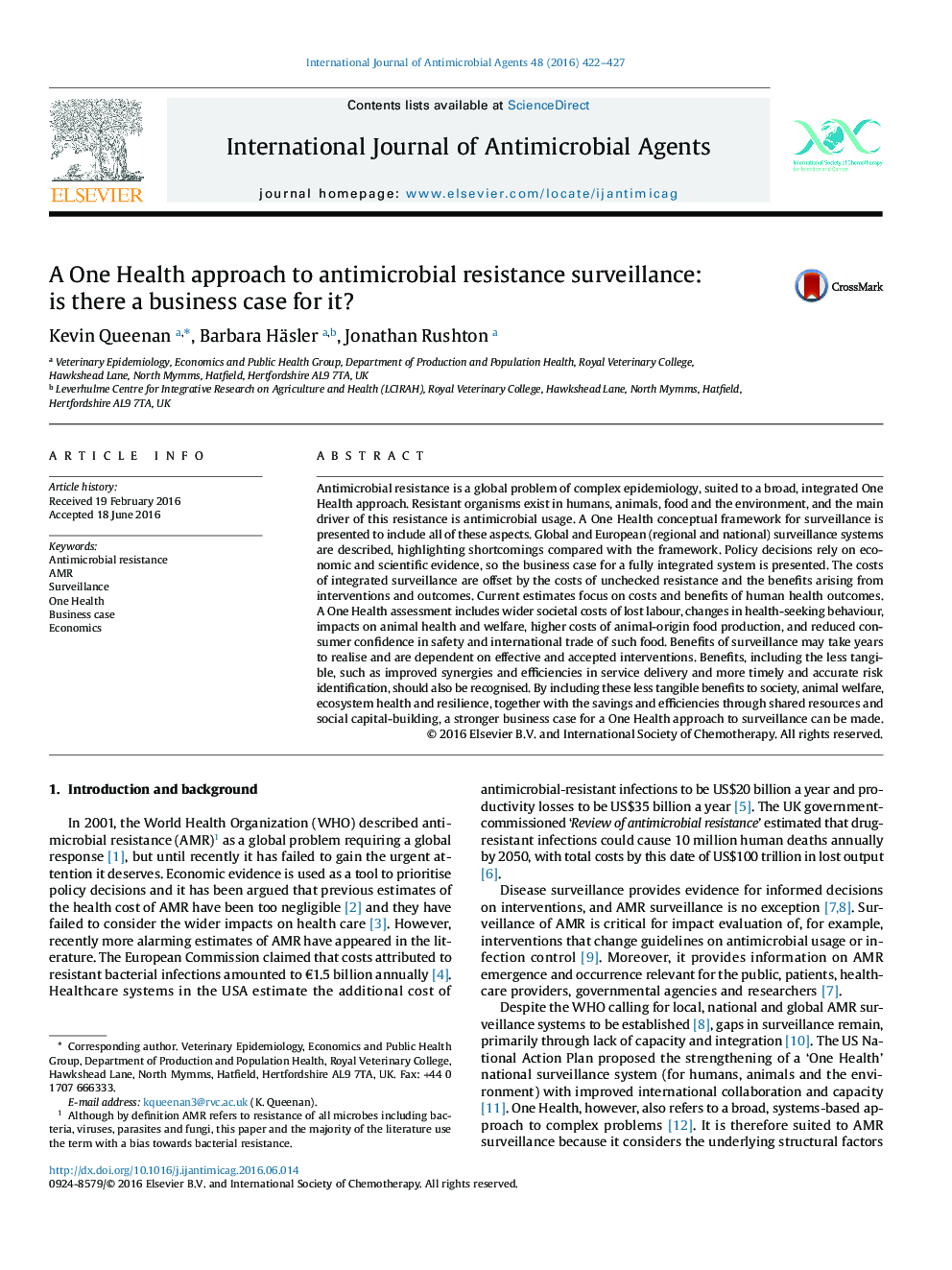| کد مقاله | کد نشریه | سال انتشار | مقاله انگلیسی | نسخه تمام متن |
|---|---|---|---|---|
| 3358378 | 1591750 | 2016 | 6 صفحه PDF | دانلود رایگان |
• Antimicrobial resistance surveillance requires an integrated One Health approach.
• A conceptual framework for a One Health approach to surveillance is presented.
• Current surveillance systems (from local to global) fall short of this framework.
• Policy decisions favour economic evidence, so a business case is proposed.
• Broad benefits to society, animal welfare, ecosystem health and more are included.
Antimicrobial resistance is a global problem of complex epidemiology, suited to a broad, integrated One Health approach. Resistant organisms exist in humans, animals, food and the environment, and the main driver of this resistance is antimicrobial usage. A One Health conceptual framework for surveillance is presented to include all of these aspects. Global and European (regional and national) surveillance systems are described, highlighting shortcomings compared with the framework. Policy decisions rely on economic and scientific evidence, so the business case for a fully integrated system is presented. The costs of integrated surveillance are offset by the costs of unchecked resistance and the benefits arising from interventions and outcomes. Current estimates focus on costs and benefits of human health outcomes. A One Health assessment includes wider societal costs of lost labour, changes in health-seeking behaviour, impacts on animal health and welfare, higher costs of animal-origin food production, and reduced consumer confidence in safety and international trade of such food. Benefits of surveillance may take years to realise and are dependent on effective and accepted interventions. Benefits, including the less tangible, such as improved synergies and efficiencies in service delivery and more timely and accurate risk identification, should also be recognised. By including these less tangible benefits to society, animal welfare, ecosystem health and resilience, together with the savings and efficiencies through shared resources and social capital-building, a stronger business case for a One Health approach to surveillance can be made.
Journal: International Journal of Antimicrobial Agents - Volume 48, Issue 4, October 2016, Pages 422–427
